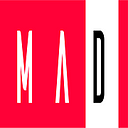5 Uses of AI in the Healthcare Industry in 2021
The uses of AI in the healthcare industry are expanding. From robotic surgeries to AI-assisted consultations, we are now living the future that is still seeing technological advancements.
Artificial Intelligence (AI) has joined almost every industry currently. AI Technology has been more advancements in technologies. Be it gaming, finance, cybersecurity, or healthcare, AI is pushing technologies to become more advanced and useful for users. Now as the healthcare industry has seen a rapid technological revolution in this century, technologies like AI or Machine Learning are making it more capable.
Today, we have AI in healthcare examples like fitness bands, healthcare applications, virtual consultations, and more. A Statista report says, AI used in healthcare operations is continuously growing. By 2025, the healthcare AI market is expected to cross a global market size worth more than 28 billion USD. Compared to 2017 statistics when it was limited to 1.4 billion USD, the numbers are expected to grow with a jaw-dropping speed.
In this blog, we are throwing some light on the best 5 AI in the healthcare industry usage cases. We will discuss how is AI used in healthcare organizations to benefit the common user and to make the healthcare industry more efficient. If you are intrigued to know more about these amazing artificial intelligence trends, stay with us until the end of this blog.
- Automated surgeries
The major advantage that the healthcare industry will witness because of AI is the usage of robotics. Robots in the healthcare industry are seeing an expansion in their adoption for tasks such as robotic surgeries. Even though the technology has a long distance to travel to become 100% reliable, using AI in healthcare operations is making it more efficient as time is passing.
Using AI in healthcare is helpful for enhancing accuracy, and it reduces the chances of human error caused by unexpected incidents. Also, medical experts get the freedom from long tiring, and delicate operations where a machine could do better. A report by National Center for Biotechnology Information (NCBI) says modern healthcare experts are teaming up with data scientists to use technologies such as AI, neural networks, and more to enhance the capabilities of automated surgeries.
A Forbes article discusses multiple usage cases where AI in surgeries has been known to provide amazing results. An article published on the Harvard Business Review website says AI-assisted surgeries resulted in five-times lesser complications for 379 orthopedic patients from nine surgical sites.
2. AI in disease detection
Diseases such as cancer can be fatal if detected at a late stage. But AI can prevent that by detecting it in the human body even at its early stage. One of the major AI uses in healthcare applications is detecting not only cancer but other major and minor diseases with higher accuracy to ensure timely treatments.
Google’s DeepMind technology has the credit of training a neural network to detect 50+ eye diseases. The technology uses 3-D retinal scans to make decisions and it was done in a collaborative study with the Moorfields Eye Hospital, London, UK.
3. Nursing chatbots
With so many possibilities coming into the existence due to the innovations by top AI development companies every day, nursing chatbots can be considered as another amazing innovation that the world needed. Nursing chatbots are AI-assisted helping tools that can use machine learning and deep learning data to help users in identifying diseases and treatments. For minor diseases such as allergies, season fevers, and more, these chatbots can not only be more affordable for common people but can reduce the burden of medical experts by taking care of patients with minor diseases.
4. Pharmaceutical researches
AI in pharmaceuticals can help in researching medicines with the help of the data that is already available. Companies like Pfizer are experimenting with the Uses of AI in the Healthcare Industry to ensure better researches with more discoveries of medicines. The AI-assisted approach for drug discovery can be helpful in reducing the error percentage that has taken over traditional approaches. Currently, among thousands of discoveries, only 4–5 drugs make it for human testing. Later, only 1 drug gets approval for further launch in the market.
5. Smart workouts
Healthcare is not only about medicines, but also about steps that we take for our constant fitness. Now, how is AI used in healthcare to target fitness issues is the real question which can be answered by looking at a few technologies that are already existing. Fitness bands, that many people are using today have adopted AI to curate and prepare smart workout routines, home workouts, healthcare monitoring, and more. These bands are helping users in recognizing possible diseases that are developing inside users too. However, there are limitations to be taken care of.
Conclusion- AI in healthcare in 2021 and beyond
As discussed via statistics given above, AI in the healthcare industry is growing constantly. With time, as more experiments see success, users will find more convenient ways of accessing healthcare that is much more efficient. Also, AI will give other advantages such as reducing the cost by reducing the need for investments in processes such as medicines’ discoveries. More adoption of AI in such procedures will result in better accuracy and lesser waste of resources and time.
Hopefully, we get to see the full potential of AI in the healthcare industry sooner than expected. For now, we will see you again with a new blog. Until then, Godspeed!
